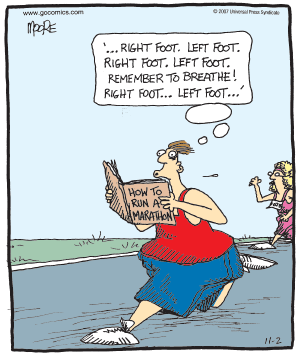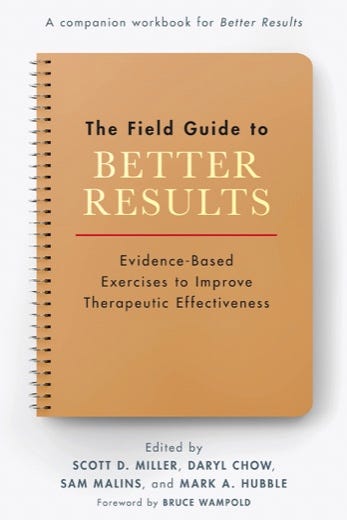Frontiers Friday #126: Humour (Part IV)🤪⭕️
The final punchline and poignant tales from the Frontiers.
Here’s the final installment on the topic of Humour from Frontiers Friday.
📽 Watch: Tig
I was not familiar with Tig Notaro’s work before this Netflix documentary.
Here’s the brief: After comedian Tig is diagnosed with stage II breast cancer, she creates a poignant stand-up set that becomes legendary overnight.
Here’s the trailer:📽 Watch: Nanette
Australian comedian Hannah Gadsby show, Nanette is in a class of its own.
How does one make you laugh one minute and move you to tears the next? Her punchlines and personal revelations on gender, sexuality and childhood adversities has re-shaped comedy.
If you haven’t watched this before, I highly recommend that you do.
Here’s a poignant clip:“Do you understand what self-deprecation means when it comes from somebody who already exists in the margins? It’s not humility. It’s humiliation.
I put myself down in order to speak… in order to seek permission… to speak. And I simply will not do that anymore.”
👓Short Read: Majority Affective Disorder, Pleasant Type.
It is proposed that happiness be classified as a psychiatric disorder and
be included in future editions of the major diagnostic manuals under
the new name: major affective disorder, pleasant type.
In a review of the relevant literature it is shown that happiness is statisticallyabnormal, consists of a discrete cluster of symptoms, is associated with
a range of cognitive abnormalities, and probably reflects the abnormal
functioning of the central nervous system. One possible objection
to this proposal remains—that happiness is not negatively valued.
However, this objection is dismissed as scientifically irrelevant.
~ Author of Doctoring the Mind and Madness Explained, Richard Bentall1, in Journal of Medical Ethics, 1992.
😂 Laugh: “Mom, where did I come from?”
A six-year-old asked her mother: “Ma. Tell me the truth. Where did I come from?” The flustered mother thought, Must I really start explaining the details of sexual reproduction already?
So she asked, “Tell me, Debbie, why do you want to know?”
Debbie said, “Cause the kid next door said he came from Melbourne. I wanna know where I come from.”⏸ Words Worth Contemplating:
Taken from Richard Nisbett’s book, Mindware, highlighting the importance of framing:Consider the Trappist monks in two (apocryphal) stories. Monk 1 asked his abbot whether it would be all right to smoke while he prayed. Scandalized, the abbot said, “Of course not; that borders on sacrilege.”
Monk 2 asked his abbot whether it would be all right to pray while he smoked. “Of course,” said the abbot, “God wants to hear from us at any time.”As Frank Zappa said,
"The most important thing in art is the frame... you have to put a "box" around it because otherwise, what is that shit on the wall?"2
Reflection
Attention is a moral act.
When working with a client, how do you frame your perspective? How do you guide your attention?
When things aren’t resonating, take a laugh, and be willing to change the frame.
BIG HUGS TO NEW PEOPLE WHO ARE AT THEIR FRONTIER!
If you've just joined us, I'm glad you can join us at the "bleeding edge." Feel free to check out the back catalogue of Frontiers of Psychotherapists Development (FPD). You might also want to go into specific topics in the FPD Archives like
And if you want to see past newsletters, the entire archive is now made available in substack.
In case you missed it, see the most recent missives
Devotion to the Craft (6 Parts)
Caring for People in Organisations (3 Parts)
Clinical Supervision (3 Parts)
Feedback Informed Treatment (4 Parts)
Unintended Consequences (2 Parts)
Deep Learner (4 Parts)
Going Further with Deep Learner and The Use of Obsidian (6 Parts)
See What You Hear, Hear What You See (4 Parts)
Trauma (3 Parts)
Deliberate Practice (5 Parts)
Empathy (6 Parts)
Therapist Effects (2 Parts)
Client Point of View (4 Parts)
Tech Tools for Therapists (4 Parts)
Emotions (6 Parts)
Sensitivity (3 Parts)
Alliance (6 Parts)
Existence (6 Parts)
Play (4 Parts)
For the general public, my other blog site is called FullCircles: Reflections on Living
By the way, don't feel bad if you want to unsubscribe to this newsletter. This might not be for you. The last thing I want is to add to the anxious clutter in our inboxes. And, please excuse any typos…
Note:
These newsletter are free, but many hours are spent handpicking the curated list… as well as writing the essays and recording the videos and podcasts that make it to Frontiers Friday . Amazon affiliate links, if any, are to help ease the costs. You can also support the sustenance of this work by picking up any of the books, dive deep into our courses, or gifting them to others.
Update: Substack has added a “PLEDGE” somewhere on the page. Thanks for those who are so kind to want to support my writings. It means a great to me. Big thanks.
Daryl Chow Ph.D. is the author of The First Kiss, co-author of Better Results, and The Write to Recovery, Creating Impact, and the forthcoming book The Field Guide to Better Results .
The Field Guide to Better Results is coming out soon on 23rd of May’23!
The British Psychological Society (BPS) is lucky to have people like Richard Bentall. I wish we did in other countries.
This is taken from Zappa’s Essay featured in Creators on Creating, an edited book by Barron, Montuori and Barron, 1997., p. 196.



